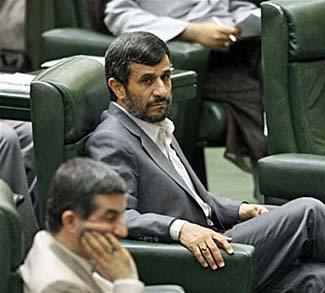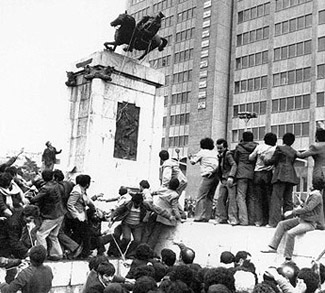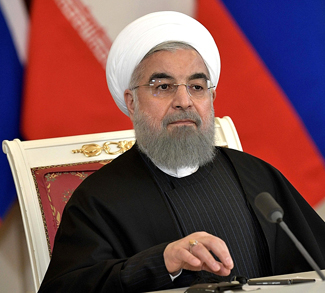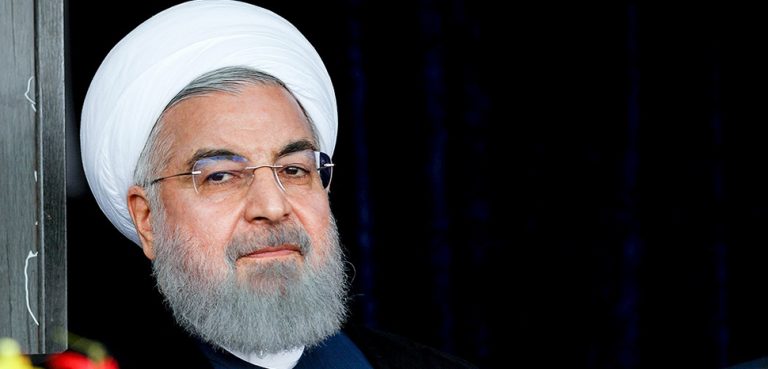Summary
The Obama administration is running out of political room to maneuver on Iran.
Analysis
According to reports in the UK’s Guardian newspaper, the U.S. is now willing to adopt a harder line on Iran in exchange for a pledge from the Israeli government to freeze settlement construction.
Two of the Obama administration’s original foreign policy points – a hard line on settlements and a thaw in U.S.-Iranian relations – both challenged the right-leaning Netanyahu government’s political agenda. Now, Israel is only a token concession away from circumventing both of these formerly imposing hurdles, thereby achieving a substantial political victory for Tel Aviv.
The deal on the table would effectively re-calibrate U.S.-Iranian relations towards the mutual animosity of the Bush years, a realignment that will reverberate for years to come, while Israel’s reported concessions amount to a very tentative reboot of the oft-aborted Middle East peace process.
Even with the reported American about-face on Iran, the Netanyahu government continues to drive a hard bargain on settlement construction. Sources close to the talks claim that the Israeli delegation still has not offered any comprehensive construction freeze. Quite the contrary, the Israeli delegation’s offer apparently consists of an eight to twelve month moratorium that excludes East Jerusalem and ‘natural’ settlement growth.
The Netanyahu administration’s position is in keeping with the Israeli public. According to polls released last week, over two-thirds of Israelis oppose a negotiated settlement freeze.
That Tel Aviv managed to identify difficulties in the U.S.-Iranian thaw and establish a diplomatic linkage between settlement building and America’s Iran policy is a boon for Israeli interests in the region.
The reasons behind souring views on U.S.-Iranian rapprochement are readily apparent. Fallout from Iran’s disputed June elections has further tarnished Iran’s image in the eyes of the American public. Ongoing allegations detailing the rape and murder of detained protestors, along with a series of high-profile show trials have had the effect of making it even more difficult for Americans to stomach a normalization of relations. At present, it would be politically ruinous for President Obama to appear to be sacrificing America’s relationship with Israeli in favor of Iran.
On the other side, the June election crisis has also damaged chances of Tehran responding positively to American diplomatic advances. The Ahmadinejad regime will proceed cautiously in its dealings with Washington, fearing that an external thaw could embolden internal reform movements.
However, recent comments attributed to Ayatollah Khamenei imply that the Iranian side is not totally ready to give up. His statements denying foreign involvement in the protest movement are likely aimed at mending internal divisions, but they also have the effect of signaling to the American authorities that Tehran is still willing to engage.
If Washington adopts a harder line on Iran it will cause ripples in the region and beyond. The fragile political fabric of Iraq, though always at risk of tearing, is doubly so when U.S.-Iranian animosity flares. The death of Abdul Aziz al-Hakim, leader of the powerful Shiite Islamic Council of Iraq party, leaves a big question mark leading into January elections. While al-Hakim was able to maintain the confidence of Washington and Tehran, his successor may find himself inclined to rebuff the former for the latter. A new U.S.-Iranian rift risks at best American influence in Iraqi domestic politics, and at worst active Iranian patronage in Iraq’s sectarian conflicts.
Assuming a new U.S.-Iranian rift, Washington will also make every effort to avert the delivery of Russian S-300 surface-to-air missiles to Iran, thereby maintaining the potency of Israel’s military option. In exchange, Moscow will surely push for guarantees from Israel and the United States not to sell arms to Georgia.
The settlement-freeze-for-Iran-freeze still has not been clinched, but both sides came out of last Wednesday’s London meeting echoing a series of amicable sound bites. It is likely that negotiations will continue in a very tentative manner until the IAEA releases its report on Iran’s nuclear program, which could end up determining the future complexion of U.S.-Iranian relations.




